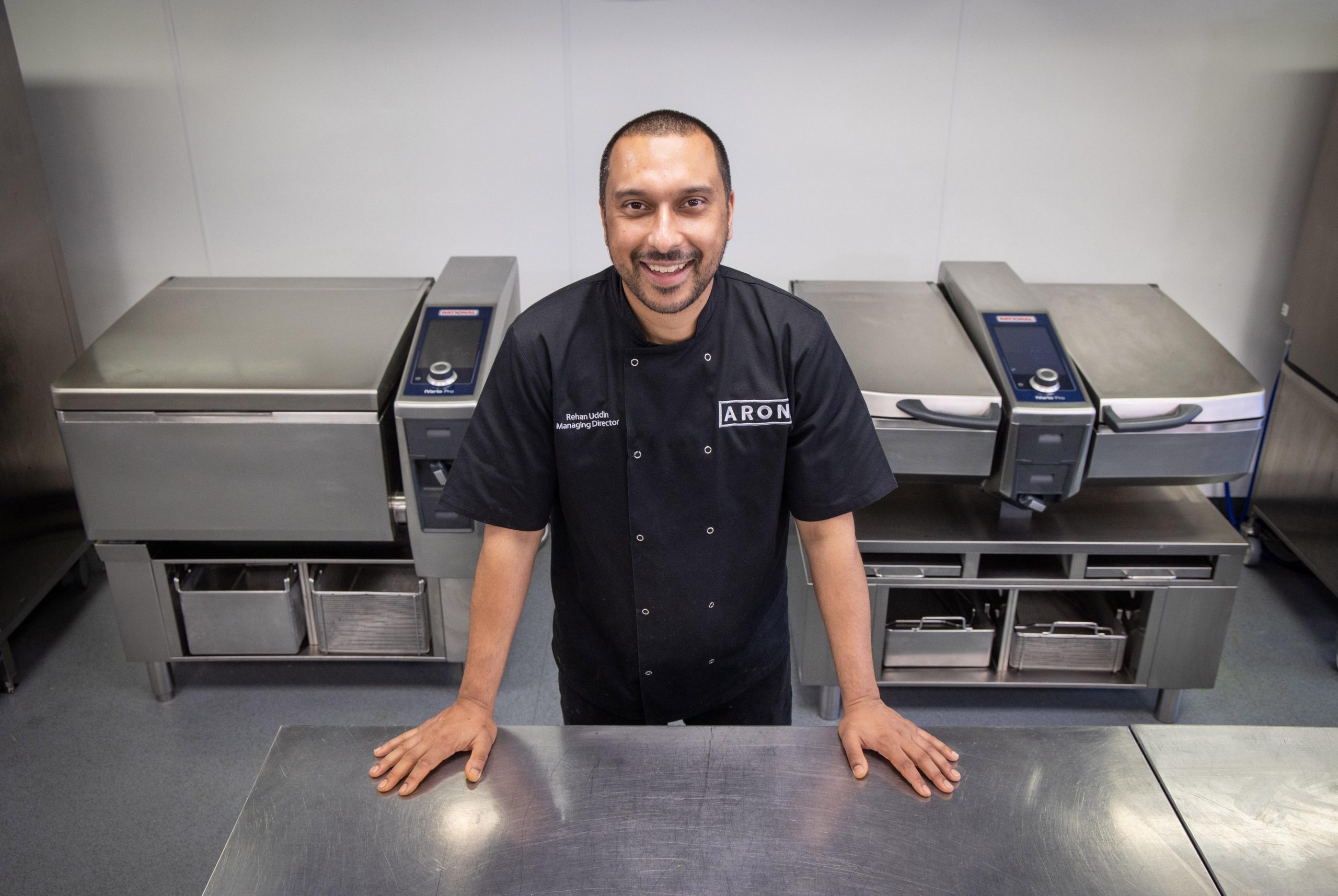Seminar discussed solutions to concerns facing the sector
Asian hospitality businesses can benefit by embracing the power of modern cooking systems in order to adapt and thrive, as the uncertain financial climate continues. That was the main takeaway from the first Rational seminar focussing on the future of Asian kitchens.
The seminar was hosted by award winning chef Rehan Uddin, owner of Indi-Yang and managing director of the Asian Restaurant Owners Network (ARON). It featured an elite panel of some of the finest Asian chefs in the world discussing some of the biggest issues facing the sector, and how encompassing advanced cooking systems like the iVario Pro and iCombi Pro from Rational can help to overcome them.
Recruiting suitable staff is currently a predicament throughout the hospitality sector but one that is particularly affecting Asian kitchens, thanks to the specialist knowledge required to work in them. Kwaz Ali, founder of Indian Restaurant Staff, outlined the issue. “The pool of staff is just not there, and the skilled people are demanding wages higher than can be afforded,” he says. “Even if staff do have the skills they say they have, they will still need to be trained, and if they leave because they find a better paid job then you’re back to square one.”
Kwaz says the solution is for businesses to innovate and invest in new technology. “Rational cooking systems can make your staff’s work easier and more efficient, meaning they’re more likely to want to stay with you.”
Dipna Anand, chef patron at Somerset House and owner of the Brilliant Restaurant, underlined the importance of nurturing the right business culture. “If you show the staff how passionate you are about the job from day one, they will be happy to learn new skills to meet the standards you’re aspiring to,” she says. “Understanding the needs of your staff and providing them with bespoke working patterns that fit in with their family lives can help to retain them. This is made easier thanks to the time saving power of modern cooking systems.”
Dipna also underlines the importance of the consistency Rational cooking systems can bring to large scale catering. “I work with Compass as a brand chef for their Punjabi food range. For example, Chelsea Football Club ask me to prepare 600 meals for an event the following week from a specified menu, our number one job is ensuring the food is hitting the consistent levels it needs to maintain. The key to that is how it is regened and served at the stadium”. she says.
“Rational is fantastic, it’s my go-to. For events like these, all our food is packed in foil trays, and when it’s delivered to the site, they know all they need to do is put it in the iCombi Pro on a steam function and bring it up to temperature ready to serve. That’s the beauty of using a brand like Rational.”
CEO of Jolly Good Hospitality Ltd, Chef Surjan Singh brings a global perspective to the issue. With restaurants in London and Doha, and with a newly opened location in Singapore, he stresses the importance of knowing what your concept is and making sure you have the right mix of staff to deliver it. “You need to fit the talent to the role,” he says. “It’s common to bring in specialist chefs from India and Pakistan and balance that with local staff, but that can be very expensive – so you should consider what skillsets you need, and what can be replicated using technology”.
Surendra Yejju, Executive Chef at Wagamama, has used Rational cooking systems to revolutionise the way Wagamama operates across all its restaurants. “For Wagamama, the most important thing is the consistency of food. You are talking everywhere from Aberdeen to Plymouth. So, in every restaurant that you go to, the key for us has been the consistency of food.
Each location has at least two Rational cooking systems, and they are used constantly to prepare fresh food every day,” he explains. “We start them up at 8 AM and they are in constant use throughout the day. It’s an important piece of kit for us.
“We’ve worked with Rational since 2006 to make sure our menu is consistent, so diners can visit any Wagamama and get the same experience every time.” The ability to systematise each step of the cooking process is key to this, and means that less skilled staff can easily meet the high standards demanded. “We’ve programmed our recipes into all of our Rational systems,” he says, “So if you want to cook chicken, you can be sure it will come out exactly as specified.”
This has benefits when training new staff. “As all the programs have been set up precisely how we want them, it’s mostly a question of teaching them which buttons to press,” says Surendra. “And as all operating information is captured we can identify issues and quickly provide additional training where it’s needed.”
Cyrus Todiwala, legendary chef proprietor of Café Spice Namasté, sees the Asian hospitality’s low profile as one of the biggest problems it faces. “By and large, we’re still looked on as a cheap and cheerful option. While we have some high-profile chefs pushing things forward, the industry is not seen as an appealing choice for young staff coming through,” he says. “Bringing in advanced cooking systems can help to change this perception, make it a more appealing industry to join.”
Rehan Uddin has long been an advocate of the benefits of Rational cooking systems “We used to have a five-person team in the kitchen but now we can do everything with two – or even just one, in a pinch!” The speed and efficiency of the iVario Pro and iCombi Pro have been gamechangers for him. “Prep time for the whole day takes about two and a half hours now,” he explains. “We can work a lot more efficiently by being able to cook different foods at the same time with the same settings, and preparing batches overnight so it’s ready first thing saves a lot of time.”
The panel also discussed the challenges of running multi-site businesses and the ability of Rational’s ConnectedCooking platform to produce consistent results in a range of different situations, and what the panel sees are the biggest challenges facing the industry in 2022 and beyond.
“It is looking like a tough few years but investing in modern cooking systems is a great idea as skilled staff might be more difficult to locate,” states Cyrus. “Patience is a good skill to learn for times like this. Old dogs might have to learn some new tricks, but it will help them make their jobs easier. We’re all here wanting to make the best food, and new technology makes that easier than ever.”

